Lights, camera, Oksana Savchuk in action.
Yesterday VATAHA was in the spotlight of the NPO talkshow “De Sociëteit” (The Society), in which moderator Ajouad El Miloudi discusses current political, social and cultural events every Saturday.
Together with Dutch photographer and long-time VATAHA collaborator Christian van der Kooy, Oksana highlighted the importance of manifesting Ukrainian culture and identity on the eve of the three-year anniversary of russia’s full-scale invasion.
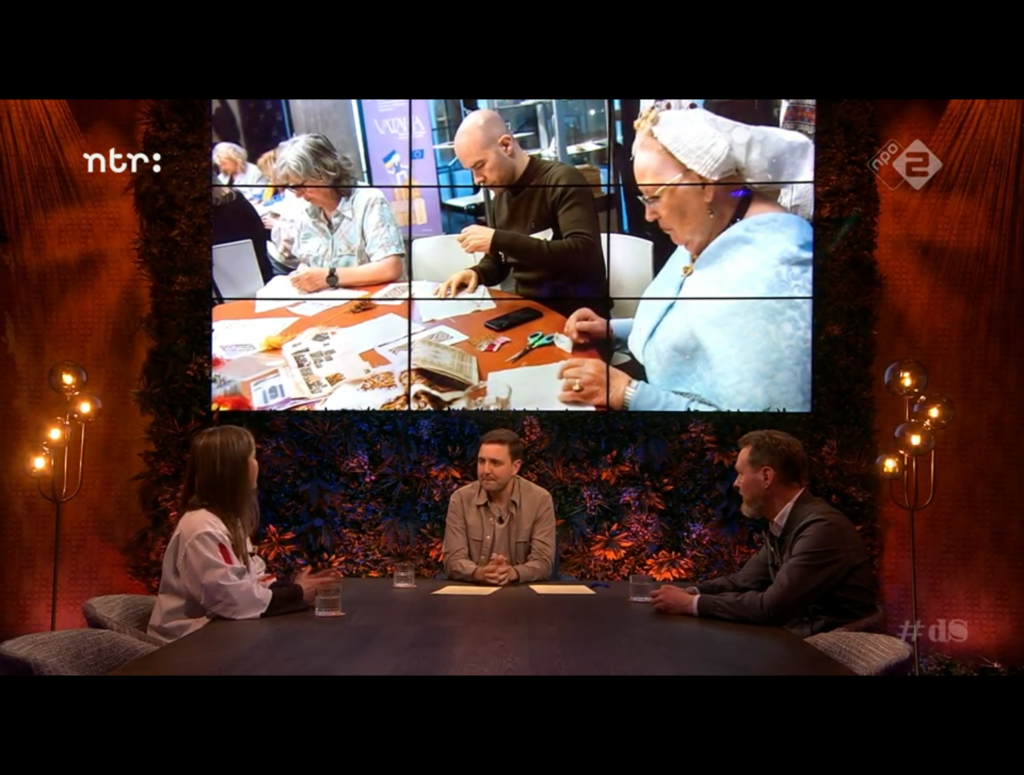
“russian aggression is not only focused on gaining Ukrainian soil but also erasing its history, culture and identity. They want to remove Ukrainians from the history books, pretending that they never existed. At VATAHA, we give a platform to the voices of Ukrainian creators so they are heard and supported,” Oksana said during the interview.
As an example of such, VATAHA’s own in-house poet and social media co-manager Anna Bezpala recited an excerpt of her poem “Borscht at Stavangerweg” in English with Dutch subtitles.
What VATAHA’s all about
The discussion began with a reflection on Oksana and Christian’s personal experiences of the beginning of the full scale invasion, which birthed the foundation of VATAHA but also ended Christian’s artistic projects in the Kherson region.
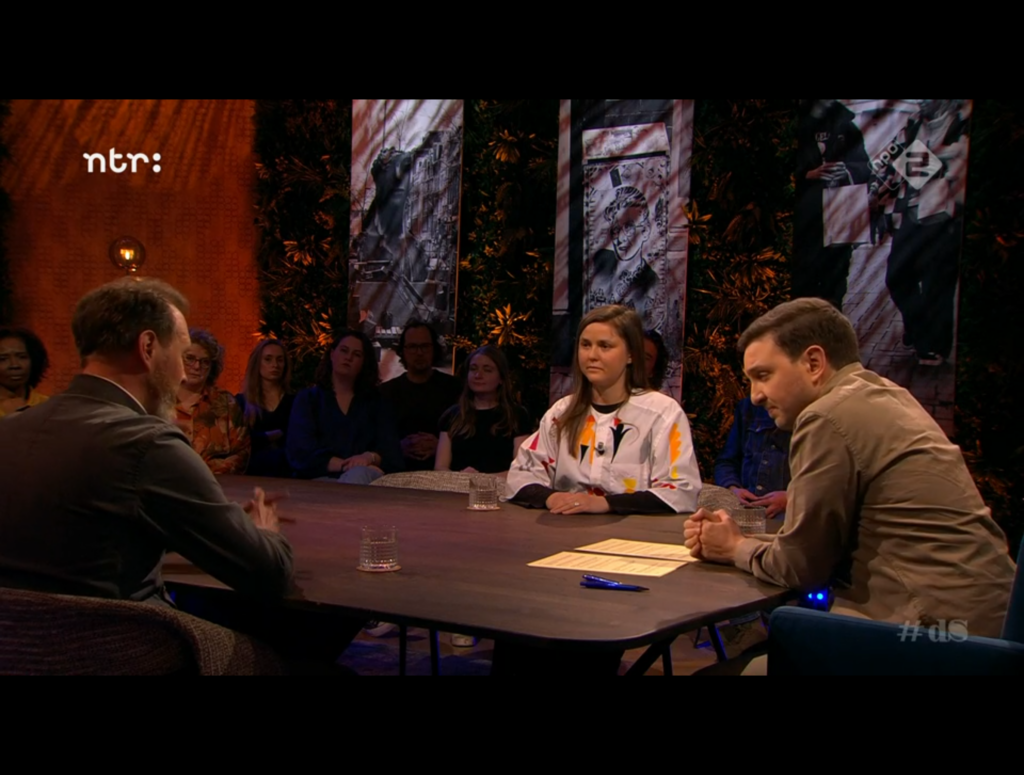
When questioned on how VATAHA combines mourning with culture, Oksana cited Run for Ukraine and the Nets of Remembrance as poignant examples, where storytelling and community building are central.
She also gave “Lost Voices, Unbroken Spirit: An Art Route”, a two-day cultural and memorial event in Rotterdam and The Hague this weekend, as an example of VATAHA’s efforts. Through poetry, music, film, exhibitions, and participatory art, this series of event honors Ukrainian resilience, culture, and the memory of those lost due to war.
An “ethical commitment” to Ukraine
Christian van der Kooy has long advocated for Ukrainian culture, emphasizing its resilience in the face of war. He believes military support is crucial, but just as important is recognizing the power of Ukrainian art and culture.
As he puts it, “We owe Ukrainians and their artistic force a huge debt of gratitude for their resistance to aggression. For not overthinking how to break the hostile russian narratives of contradictory lies and false images, but to turn it around, and focus on a positive way of being in the world.”
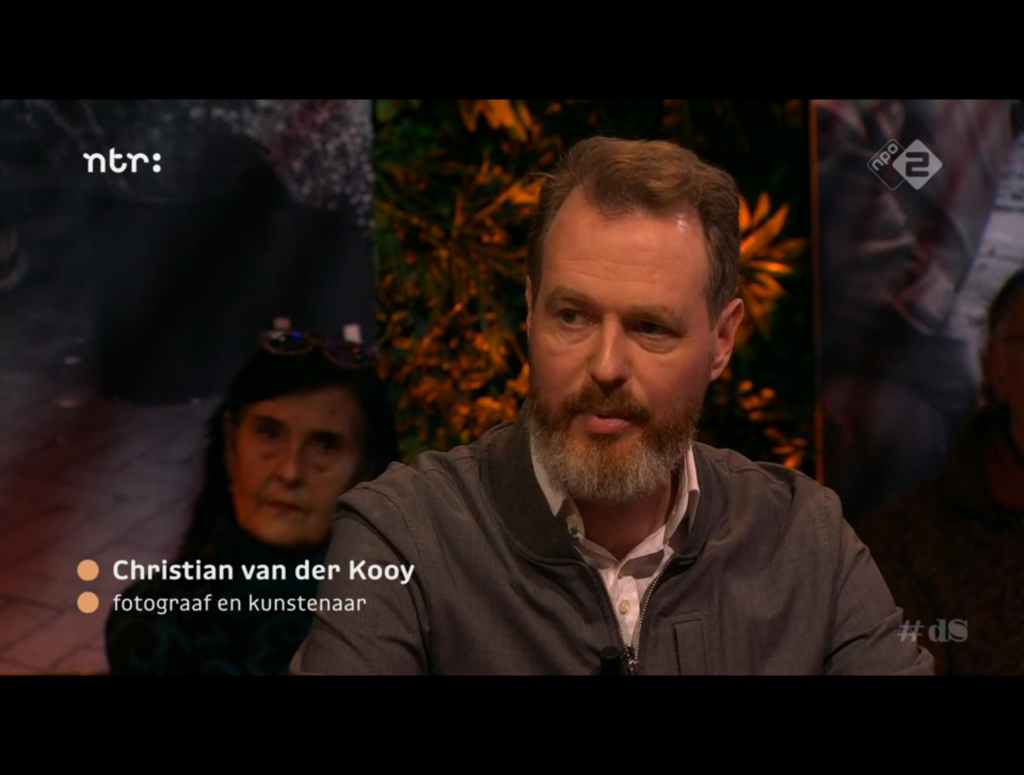
During the NPO interview, Christian discussed his collaboration with VATAHA at the Evening of Hope, as well as his latest photography exhibition work in Kharkiv. “The beauty of Ukrainian culture lies within the manner they shape their lives from an intrinsic experience and also deal with history, and with the present,” he said during the interview. “They always try to bring that together.”
In his view, supporting Ukraine as an international community is not just about politics; it is a moral duty. “As long as ordinary Ukrainian men and women continue to defend their homes and Europe, we have the ethical commitment to support them,” says Christian. Supporting Ukraine’s culture is vital to preserving its identity and spirit. It is up to us, Europeans, to save Ukraine from destruction.”
Ukrainian poetry on Dutch TV
Although she joined VATAHA as a core volunteer just five months ago, Anna did not shy away from the opportunity to perform one of her poems on Dutch TV in front of a live audience. “I told her I’m in!” says Anna. “I was very excited that the poetry I had planned for the Art Route would gain a much larger outreach.”
She performed a shortened version of her poem “Borscht at Stavangerweg” for the TV recording, but recited it in its full version within the poetry and music evening she co-organised for VATAHA’s three-year war memorial in Rotterdam and the Hague the same weekend.
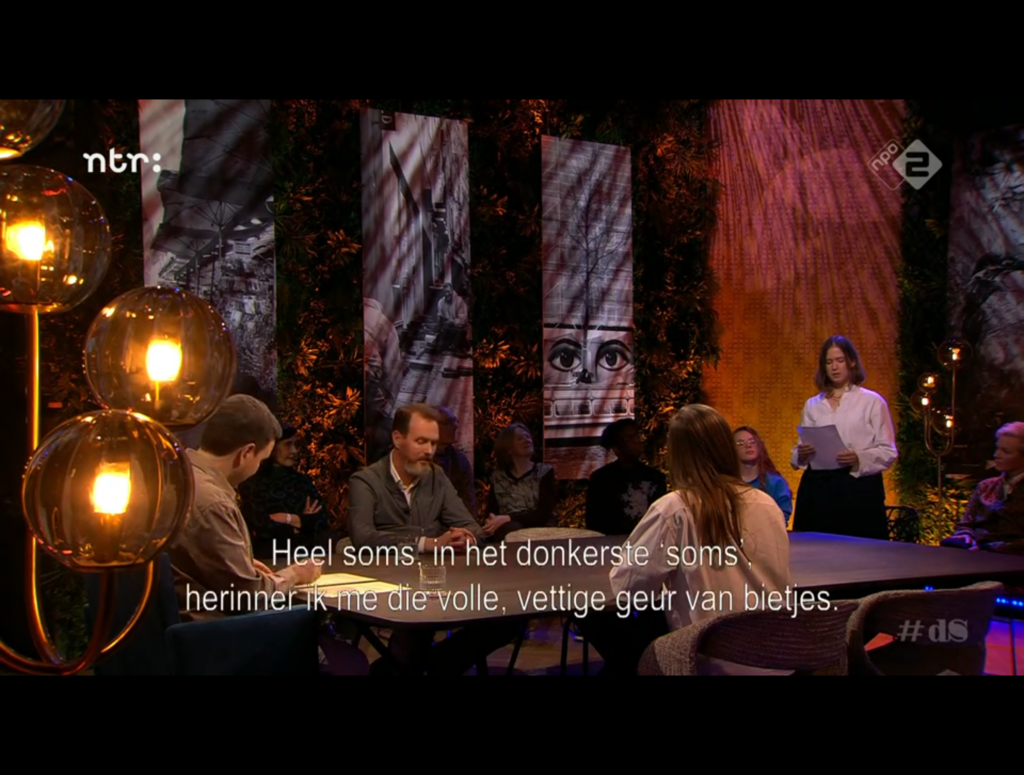
Borscht at Stavangerweg (excerpt)
Sometimes, at the darkest of the “some” times,
I remember that filling, oily, beetrooty smell.It was spring, we didn’t talk much.
Just “eet smakelijk” and “smachnoho” here and there.
For many of us in the room, it was the first borscht they ever tasted.
We were tired from monitoring strikes, army advancements, sorting packages of paracetamol, canned soups, and other whatnots.
We were so convinced, so sure then.
Natali, Klaas, the Dutch-Armenian tradesman that let us use his storage for free all those months, the women and men whose names I don’t remember but who cooked that borscht and offloaded those donations from that local Albert Heijn.Now, even though that sunny afternoon is stored away in the back of my mind to resurface when my future grandchildren will ask: “Grandma, how was the war like?”,
And even though I no longer shove boxes into trucks with Ukrainian numberplates with those men and women,
I know: I still have that spirit in me. I will continue.
And I am sure some of you do too. Some of you will too.
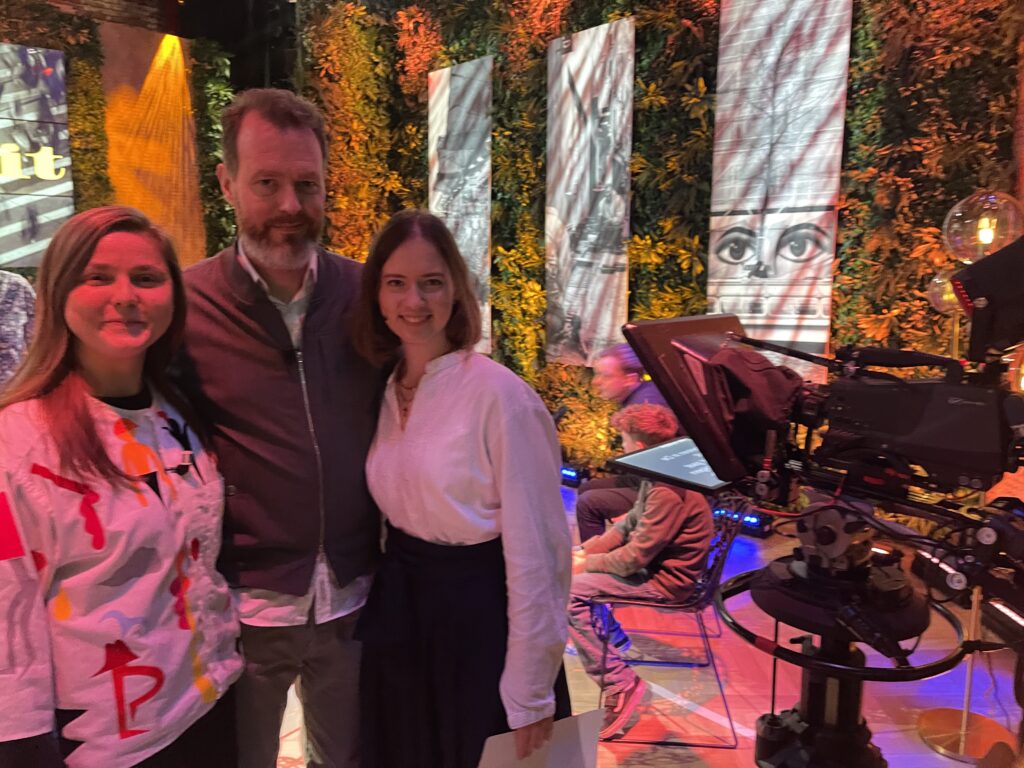
With additional reporting from Dasha Lohvynova and Olena Poburko